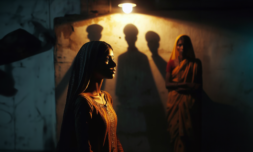The dramatic detention of Dr. Ritu Singh, a former Delhi University professor, marks a turning point in her ongoing protest against caste discrimination in academia.
Dr. Singh, a Dalit professor dismissed from University of Delhi allegedly due to caste bias, has protested for over 170 days seeking justice and reform.
On Tuesday, Delhi Police apprehended Dr. Singh and supporters after forcefully removing their protest site in Delhi University a day prior. ‘This dharna has been constitutional and peaceful. Yet we are facing resistance…are we supposed to think women, especially marginalized ones, have no right to protest?’ she remarked to the media.
Her statement encapsulates the oppressive status quo that India’s educational institutes reinforce despite their rhetoric of merit. Behind their façade, lies deep roots of caste tyranny that systematically discriminate against Dalits, Adivasis, and other marginalized groups.
Dr. Singh’s discovered this bitter truth after she joined Delhi University’s Daulat Ram College as an ad-hoc Assistant Professor in 2019. Within a year she was dismissed by the Principal, allegedly for being Dalit. Protests failed to renew her contract in 2020.
When Dr. Singh filed a legal case, the Principal produced a letter claiming student dissatisfaction. But investigations revealed the supposedly dissatisfied students had never been taught by Dr. Singh. A case was registered against the Principal under the SC/ST Act, but she faced no consequences, instead gaining a promotion.
For 200 days, Dr. Singh has protested seeking the Principal’s suspension. She remains undeterred despite disruptions. ‘Getting justice is not easy for us, despite the constitution being given by a Dalit. But I have faith in the constitution and my fight will continue,’ she asserts.
Dr. Singh’s experience fits a familiar pattern of discrimination student and faculty from marginalized backgrounds face in India’s top institutes.
Behind their progressive facades, rampant caste oppression persists, signaling the failure to build an egalitarian, socially just society.
Energetic young scholars like Payal Tadvi, Rohith Vemula, Muthukrishnan Jeevanantham had dreams and lives destroyed by what they call ‘institutional murder’ – systemic caste bias fused with a culture of silence.
Most universities fail to implement UGC guidelines to curb discrimination. Surveys have revealed prejudice ranging from social ostracization to scholarship denial to lack of promotions.
IIT Bombay receives over 50 caste bias complaints annually but addresses under 5%. Studies confirm deep prejudices in IIT faculty hiring. JNU, Delhi University, TISS also face charges of engrained discrimination, with few Dalit faculty gaining professorship.
Teachers face casual casteist remarks, stunted careers, and social exclusion. A Dalit faculty member at Patna University was compelled to eat separately. Delhi University saw protests against appointing an Adivasi Vice Principal. Elite Chennai colleges openly specify wanting ‘Brahmin’ cooks.
The media’s silence on Dr. Ritu Singh screams injustice – all because she’s Dalit. If she was Savarna, the media would have been shouting her story from the rooftops. This is enraging!
Enough of this.#JusticeforDrRituSingh pic.twitter.com/vBKVQpCA7i
— Lokesh (@lokeshbag67) January 9, 2024
Students admitted through quotas undergo tremendous isolation. In IITs, upper caste hostelers have coerced Dalits to vacate dorms. Mess workers face harsh treatment for being Dalit. Pooja rituals and casteist slurs create daily alienation.




















